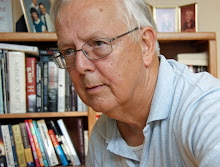We don’t say that in the same way that bankers do, or hair
stylists, or store managers. We’re different, in that we really are what we do. Writers are never not
writing, even when they’re not actually sitting in front of the keyboard.
So you have to be careful around us. We listen for a turn of
phrase we may love, we hear your stories of family conflicts and dreams
deferred and reactions to news stories, and we tuck everything away. We use you.
I’m a shameless example. I carry a notebook with me. I
eavesdrop on conversations, I peer into lighted rooms at night, I ask seemingly
innocent questions of strangers. All of my experiences are ultimately about
words: how I’m going to render what I’m seeing or hearing or doing into words,
which character can best use this situation or that conversation and make the
words their own … well, you get my drift. I’m never not thinking about writing.
So if you meet me, beware. You’ve been warned.
Does it mean that I live vicariously through others’
experiences? Perhaps; but I rather think not. I live, if anything, in the
liminality between reality and fiction, in the margins of stories, in the
truths that can only be absorbed through novels. Toni Morrison once said in an
interview, “I’m just trying to look at something without blinking.”
And maybe that describes best who I am. My work is dark,
because I need to look at the world
without blinking. I explore what it might
mean to a woman to learn that her beloved father may also be a war criminal. I
write about a war hero’s deteriorating mental health and his family’s impatience
with his narrowed world. I think about how far a person may be pushed when her
husband abuses her and her child is murdered. I bring to light the hundreds of
orphans misclassified as insane by a heartless system, and the CIA experiments
that benefited from it. I fill a chapbook with poetry trying to get at the
experience of domestic violence.
People talk about writing as a journey. As a metaphor. As a
way of making sense of the senseless. For me, though, it’s always simply been
an identifier. I’m not very good at much else in life besides writing, and I’ve
never really wanted to do anything besides write. Does that make my writing a
vehicle; does it mean that I’m a seasoned and savvy traveler of the interior?
Or is it just who I am?
I don’t know, and I suspect that the answer is different for
everyone. I’d be interested in hearing what your answer is … is your writing a journey? Or is it
something that you do on the way somewhere else?
Or am I just asking the question as a way of peering into
your soul for more material? When you’re talking with a writer, you’ll never
really know.
Jeannette de Beauvoir is
an award-winning novelist, poet, and playwright, who divides her life between
Cape Cod and Montréal and spends far too much time thinking about all these
things. Read more about her at www.JeannetteAuthor.com.
















